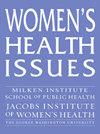Provider and Staff Perspectives on Screening and Referral for Social Determinants of Health During Perinatal Care: Implications Using the Consolidated Framework for Implementation Research
IF 2.5
2区 医学
Q2 PUBLIC, ENVIRONMENTAL & OCCUPATIONAL HEALTH
引用次数: 0
Abstract
Background
New federal mandates require universal screening and referral for social determinants of health (SDOHs), and evidence exists supporting its integration into primary care practice. However, implementation in maternity care remains understudied and underfunded. To inform maternal health practice, we studied clinical stakeholders' perspectives on SDOH screening and referral knowledge, priority, challenges, and opportunities across four hospital-affiliated obstetrics and gynecology clinics in New Hampshire.
Methods
We conducted 15 semistructured interviews and four focus groups (with 20 total group participants) to explore clinical providers’ and staff perspectives regarding the implementation of SDOH screening at their obstetrics clinics. We used the updated Consolidated Framework for Implementation Research to inform our interview and focus group guides. We identified our themes inductively using Practical Thematic Analysis.
Results
Participants represented nine different clinical and administrative roles. Four major themes culminated from the interviews and focus groups: 1) clinical staff identified clinic-specific workflows as critical to implementing the SDOH screening intervention; 2) clinical staff's workload and lack of training in SDOHs informed their level of commitment to SDOH screening and referral; 3) given many patients' extensive psychosocial needs, clinical staff wanted dedicated resources and time to respond to screening results; and 4) clinical staff perceived that SDOH screening impacts the patient experience, with the potential to decrease stigma depending on how screening results are discussed.
Conclusions
Despite unanimous support for addressing SDOHs within maternity care, participants perceived persistent challenges to effectively implementing SDOH screening and providing adequate referrals. They recommended that screening for SDOHs in vulnerable populations be accompanied by clear guidance and leadership, equitable distribution of resources and staff time between implementing clinics, and continuous quality improvement efforts.
提供者和工作人员对围产期保健期间健康的社会决定因素的筛查和转诊的看法:使用实施研究的综合框架的含义。
背景:新的联邦法令要求对健康的社会决定因素(SDOHs)进行普遍筛查和转诊,现有证据支持将其纳入初级保健实践。然而,在产妇保健方面的执行情况仍未得到充分研究和资金不足。为了向产妇保健实践提供信息,我们研究了新罕布什尔州四家医院附属妇产科诊所的临床利益相关者对SDOH筛查和转诊知识、优先事项、挑战和机遇的看法。方法:我们进行了15次半结构化访谈和4个焦点小组(共20名小组参与者),探讨临床提供者和工作人员对产科诊所实施SDOH筛查的看法。我们使用了更新的《实施研究综合框架》来为我们的访谈和焦点小组指南提供信息。我们使用实用主题分析来归纳确定主题。结果:参与者代表了九种不同的临床和管理角色。访谈和焦点小组最终确定了四个主要主题:1)诊所工作人员确定了诊所特定的工作流程对于实施SDOH筛查干预至关重要;2)临床工作人员的工作量和缺乏SDOH培训决定了他们对SDOH筛查和转诊的承诺程度;3)考虑到许多患者广泛的社会心理需求,临床工作人员需要专门的资源和时间来响应筛查结果;4)临床工作人员认为,SDOH筛查会影响患者体验,并有可能减少耻辱感,这取决于如何讨论筛查结果。结论:尽管在产科护理中一致支持解决SDOH问题,但参与者认为有效实施SDOH筛查和提供足够的转诊存在持续的挑战。他们建议,在脆弱人群中进行SDOHs筛查的同时,要有明确的指导和领导,在实施诊所之间公平分配资源和工作人员时间,并不断努力提高质量。
本文章由计算机程序翻译,如有差异,请以英文原文为准。
求助全文
约1分钟内获得全文
求助全文
来源期刊

Womens Health Issues
Multiple-
CiteScore
4.50
自引率
6.20%
发文量
97
审稿时长
32 days
期刊介绍:
Women"s Health Issues (WHI) is a peer-reviewed, bimonthly, multidisciplinary journal that publishes research and review manuscripts related to women"s health care and policy. As the official journal of the Jacobs Institute of Women"s Health, it is dedicated to improving the health and health care of all women throughout the lifespan and in diverse communities. The journal seeks to inform health services researchers, health care and public health professionals, social scientists, policymakers, and others concerned with women"s health.
 求助内容:
求助内容: 应助结果提醒方式:
应助结果提醒方式:


